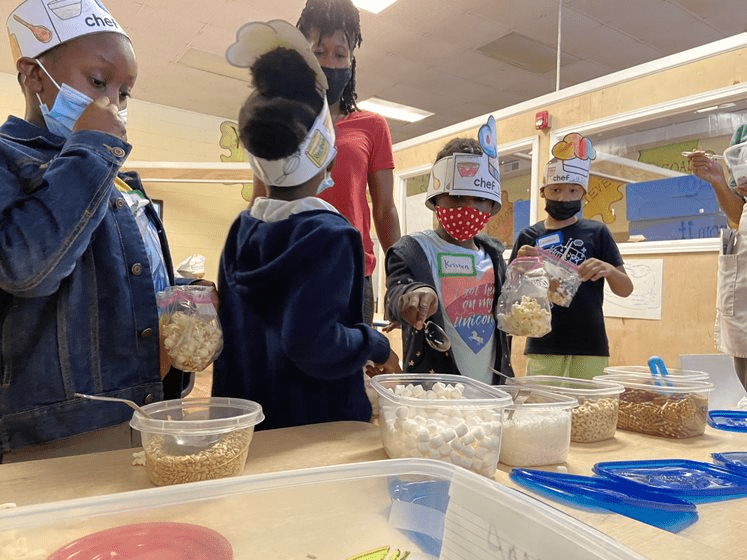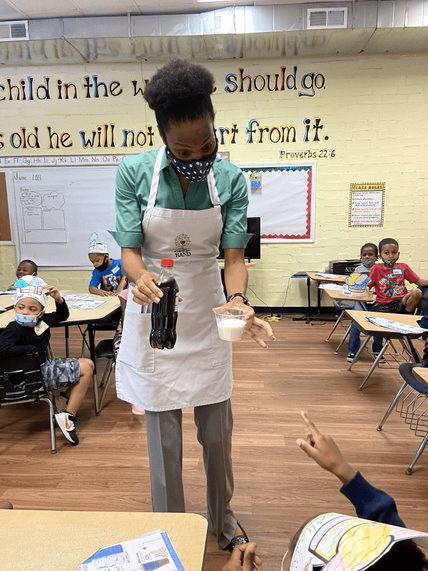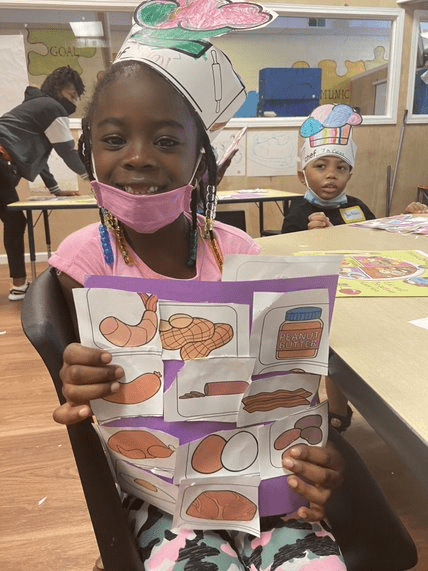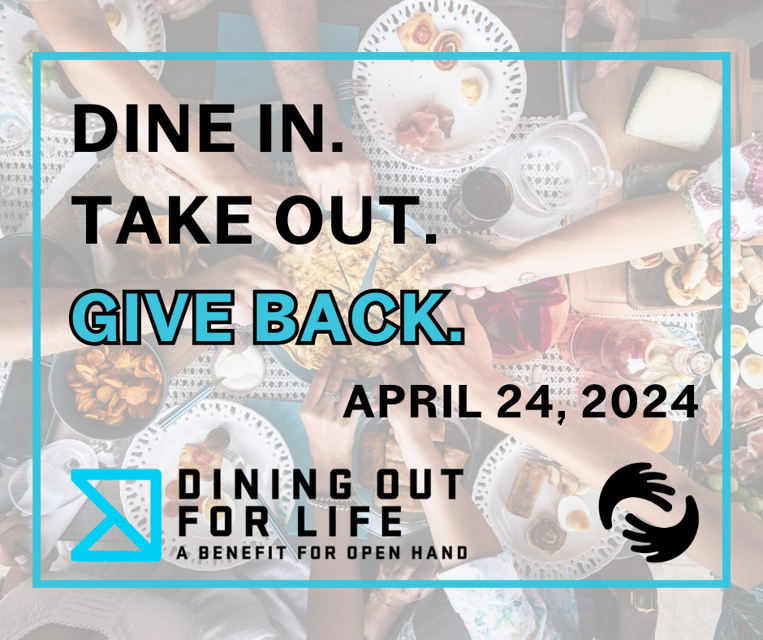
Watching the sheer joy expressed by the girls and boys enrolled in our Open Hand Cooking Matters classes this summer help us, even if only briefly, forget that COVID has had a devastating impact on our community’s children. Or that the very children we serve – those facing racial, economic and other inequities – have been the most affected. This underscores the true impact these classes have on these kids and their families.
Each day, these children are swept away – into a hands-on experience that not only teaches them how to make better food choices, but empowers them with life skills they can take home with them and, equally as important, allows them to feel challenged, embraced and accepted.
In this summer’s Cooking Matters classes, including those taught last month with a group of highly engaged six- and seven-year-olds at Harvest Rain Academy, the children learn about a variety of different nutritional topics, with the goal of teaching them about the five food groups and how important it is to eat from each group every day. In addition, the children learn how to assemble healthy meals or snacks for themselves, whether it’s a veggie wrap or homemade trail mix.

Embedded in the evidence-based curriculum are some very valuable and eye-opening examples of just how these kids are affected by their everyday choices. One involves a demonstration led by Cooking Matters’ instructors, Miss Marcia Rafig and Miss Akeena St. Martin, which illustrates just how much sugar is in a bottle of their favorite soda. After Miss Akeena took an empty cup and started spooning the appropriate amount of added sugar into it, with the students counting each spoonful along with her, they were shocked. “That’s 17 and a half scoops of sugar in one soda,” Miss Akeena told them at the end of the exercise, which is often referred to as “Sugar Shockers”.
Of course, the kids are taught that moderation is key. As the class learns how to make their own soda with grape juice and seltzer water, Miss Marcia reminded them “A little sugar is okay, which means you can have that sugary store-bought soda every once in a while, but not all the time.”
Every day the students work through a different food group. When it comes to vegetables, the students are each given a plate with a tortilla, cherry tomatoes, lettuce, cucumbers, and cheese, along with a plastic knife. As the instructors explained that they’d all be making their own vegetable wraps, the students protested.
“They say they don’t know how to do it, but then we show them how to cut everything up into bite-sized pieces and put it in the tortilla, and they’re so proud. It restores their confidence and shows them that they can be independent,” Miss Marcia explains.
Another big lesson that the students were able to learn is the difference in saying “I don’t like it” and “I’ve never had it before” when it comes to new foods. “We say, ‘Don’t yuck my yum.’ You can’t say you don’t like something until you’re tried it, and because of that a lot of them are trying new things and finding real joy in more nourishing options.”

By the end of the last class, the students have not only accomplished all the goals we set out for them, but so much more. They are willing to try new things, make better food choices, and talk confidently about their increased nutrition knowledge.
Ultimately, it is our hope that the students enrolled in these classes not only make healthy eating a habit, but bring the knowledge they’ve gained home to their families and friends. “We make sure the ingredients we use are inexpensive, talk about alternatives, and provide them with an ingredients list that they can share with their caregivers what they’d need to purchase to make the healthy snacks from class.”
As the summer continues, we’re eager to continue engaging these kids and teens and, in our own small way, help them regain a measure of confidence and independence lost during their isolation.

